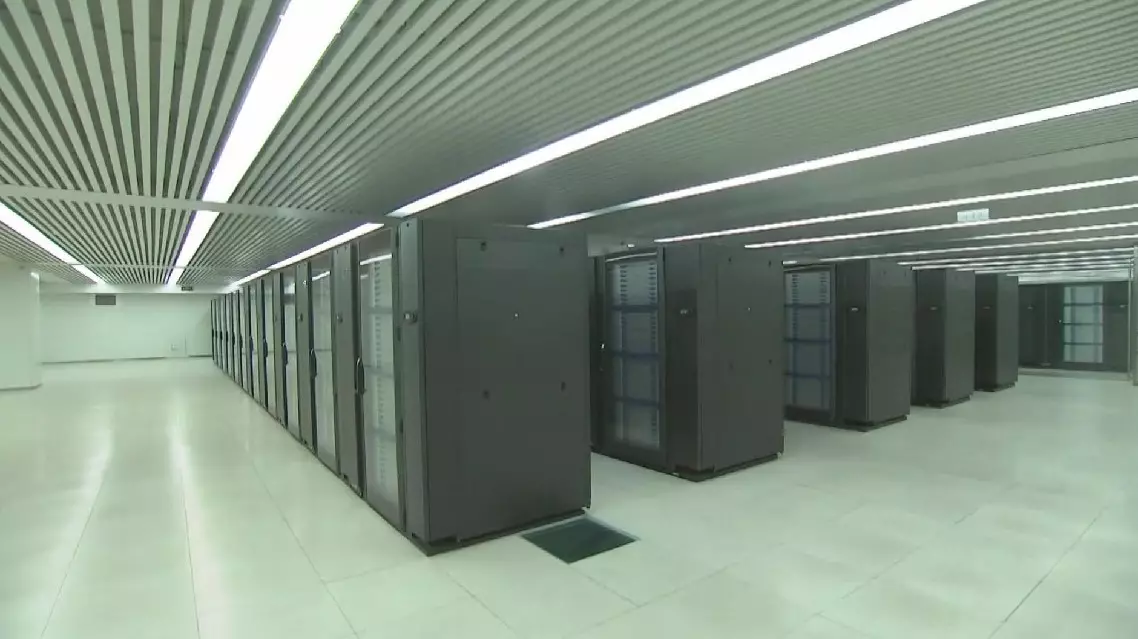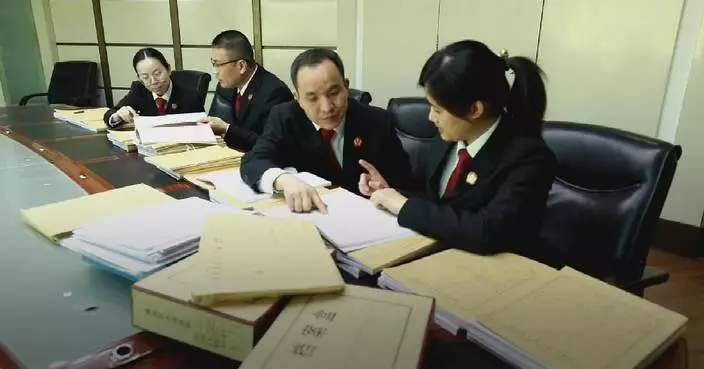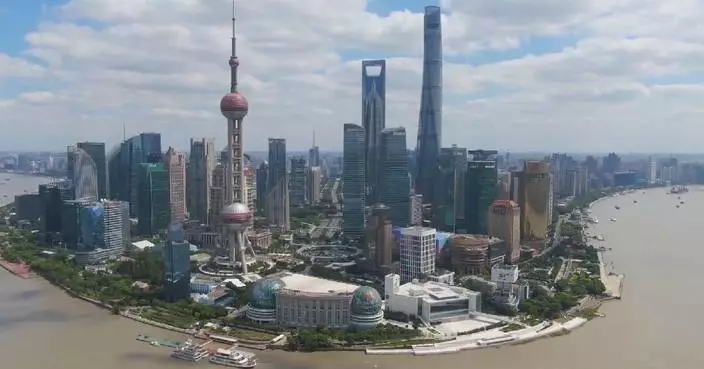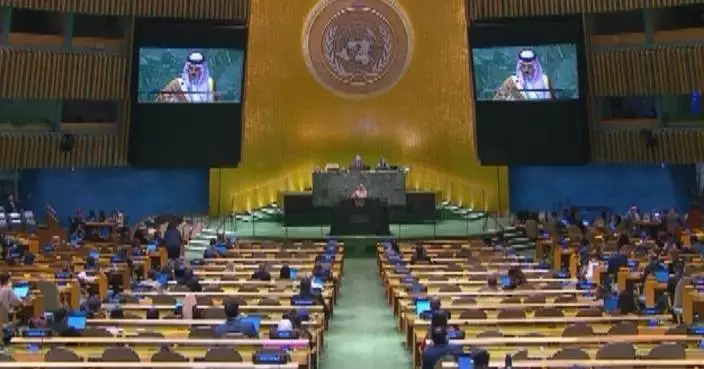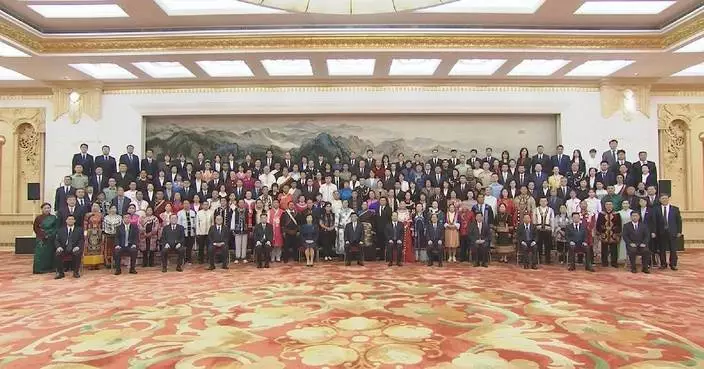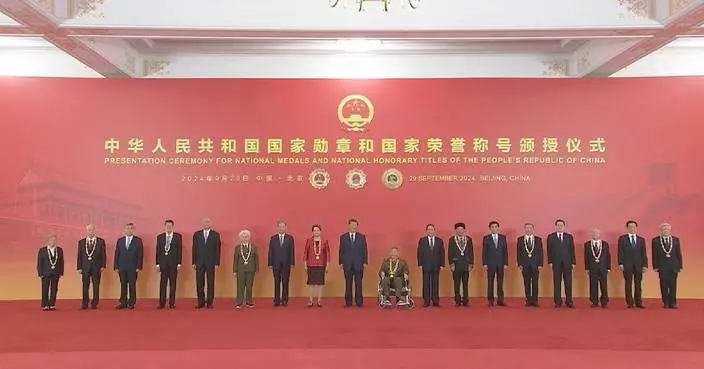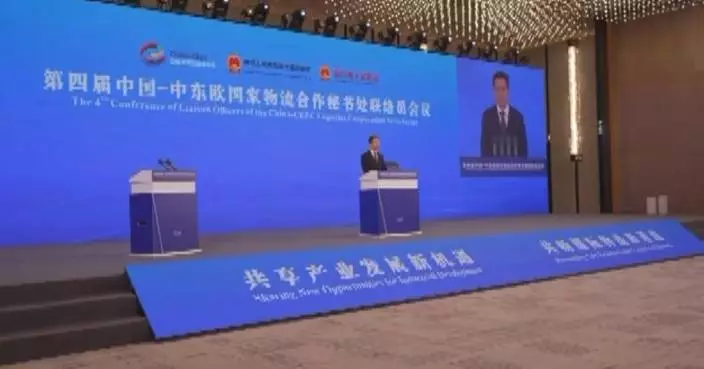Chinese President Xi Jinping on Sunday presented national medals and honorary titles to the recipients ahead of the 75th anniversary of the founding of the People's Republic of China.
Xi, also general secretary of the Communist Party of China Central Committee and chairman of the Central Military Commission, conferred the highest national honors at the Great Hall of the People in Beijing.
As the ceremony started, senior official Cai Qi read out a presidential order signed by Xi on the awards.
Four people were awarded the Medal of the Republic.
Dilma Rousseff, president of the New Development Bank and former Brazilian president, received the Friendship Medal. Ten people were awarded national honorary titles.
"The medal was awarded to me, and I felt that the Party's concern for me and its evaluation were perhaps too high. I've never thought of myself as a hero in war," Huang said.
"I didn't think about being rewarded during the war. I want to be one of the frontliners because, as a Party member, I need to make efforts in critical moments," he said.
Zhang Xielin, a celebrated table tennis player and coach, was awarded the title of Outstanding Contributor to Sports.
"This great honor is an encouragement and support from our nation to the sports community. To be honest, I'm just a representative of our sports circles; this honor belongs to the whole community," said Zhang.
"President Xi supports sports. I believe our sports are getting better and better, especially with the current emphasis on national fitness. It's a success when we can see more people walking in parks, playing in indoor stadiums, and enjoying outdoor activities," he said.
The title of People's Health Worker was conferred on Lu Shengmei, a doctor with a longstanding commitment to improving healthcare in less-developed regions, especially in promoting safer childbirth practices and reducing infant mortality. "I made a commitment to go to the hardest places when I graduated from school. We shall never quit and always be prepared to sacrifice for the Party and the people," said Lu.
"My phone number is known by many, and I keep my phone on around the clock for volunteer clinics. I must answer calls, especially at night when children are prone to serious illnesses. At that time, I was the only clinician who graduated from the department of pediatrics in the twelve counties of the Yulin City. I remember one instance when I hesitated to speak publicly, feeling it was like a potter praising his pot. I said I could make it public since I work for the Party," she said.
The title of People's Scientist was conferred on Zhao Zhongxian, a well-known scientist in high-temperature superconductivity research.
"I am an ordinary person. In early 1974, I was sent to the UK to study superconductivity, where I realized the huge gap between us. Upon returning to China, I dedicated myself to exploring superconductivity, particularly high-temperature superconductivity, with determination. Though I lacked material resources, I was spiritually rich. Superconductivity itself is not a material with a high output value in China. It is a strategic material and technology. Considering this, it is very important to the country, to science, to the country, and to the people. In our pursuit of scientific truth, we should strive to benefit our country and its citizens," said Zhao.
Zhang Jinfan, a prominent jurist and legal educator on China's legal history, and Huang Danian, a late distinguished strategic scientist and geophysicist, were granted the title of People's Educator.
"When we arrived at the China University of Political Science and Law, there was only one building for us, and some of us lived in buildings converted from a pig farm outside the school. Under those conditions, we were urged to set a good example as the first cohort of postgraduate students and to maintain the essential mindset of education. We should not be picky about our environment. Those who are picky will never excel in their studies. I teach my students that whether in study or work, they should not be fastidious about their surroundings. It's a matter of survival of the fittest; those who endure will thrive. The key is to work hard and focus, which is paramount," said Zhang.
Xu Zhenchao, an accomplished technician recognized for advancements in container handling technology, was awarded the title of People's Craftsman.
"I know that knowledge can change one's identity. At that time, I hadn't even graduated from middle school and lacked knowledge and professional skills. However, I have an inquisitive mind and am willing to do whatever it takes to achieve my goals, which is my guiding principle. We are fortunate to be part of a new era characterized by China's high-quality development. The times have pushed us to learn and urged us to run faster. Ultimately, it is the era that has shaped me, my colleagues, and the workers as a whole. Therefore, receiving this significant national honor feels like the greatest encouragement and inspiration for our worker community," said Xu.
The title of People's Artist was conferred on actress Tian Hua, whose portrayal of iconic female characters in early Chinese cinema has left a lasting impact on the industry.
"My life has been very meaningful. I have experienced all the joys and sorrows, the sweet and the sour; during the War of Resistance against Japanese Aggression, I was only 12 and couldn't walk any further. I chose to crawl, holding onto the belts of those older than me, and crawled 50 kilometers one night. This is how I got through it. Therefore, I am an actor with authentic experiences, and I still wear the type-21 combat uniform of the Chinese People's Liberation Army. My homeland, the Party, and the PLA have changed my life, and so have the people. I belong to my country," said Tian.
Bayika Kalidibek, a veteran border patrolman of the Tajik ethnic group in northwest China's Xinjiang, was honored with the title of People's Guard.
"If there were no boundary monuments, there would be no flocks and herds. My son will be there if I fall, and my descendants will be there too. We have a responsibility to guard every boundary monument, every inch of land, and every stream. We must safeguard our territory," said Bayika.
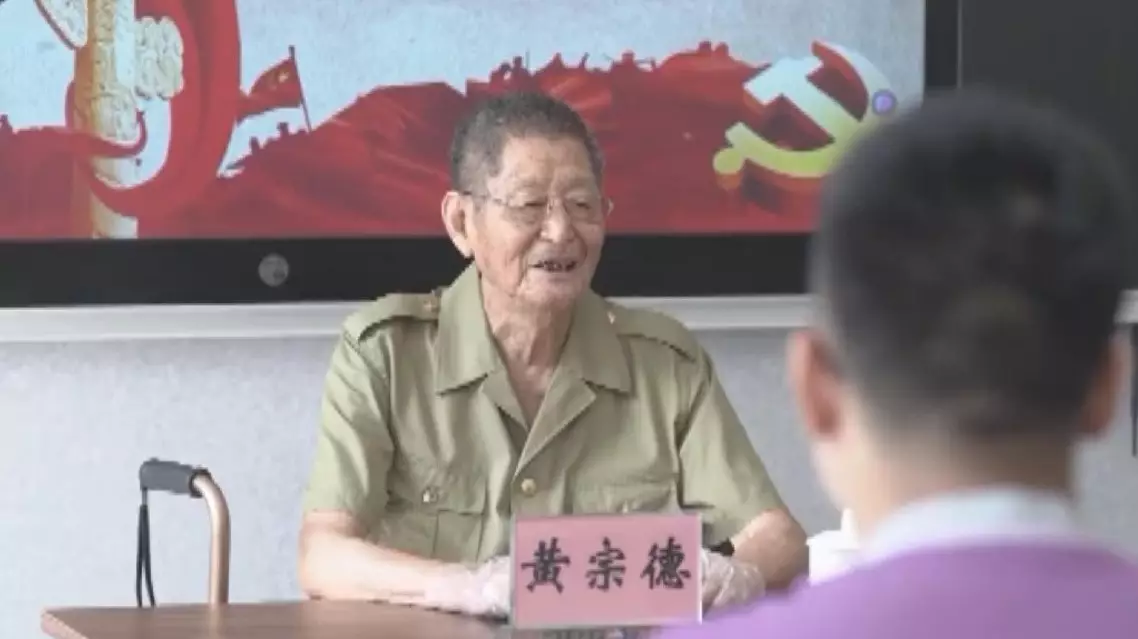
Greatness emerges from everyday heroes: celebrating ordinary individuals who inspire


